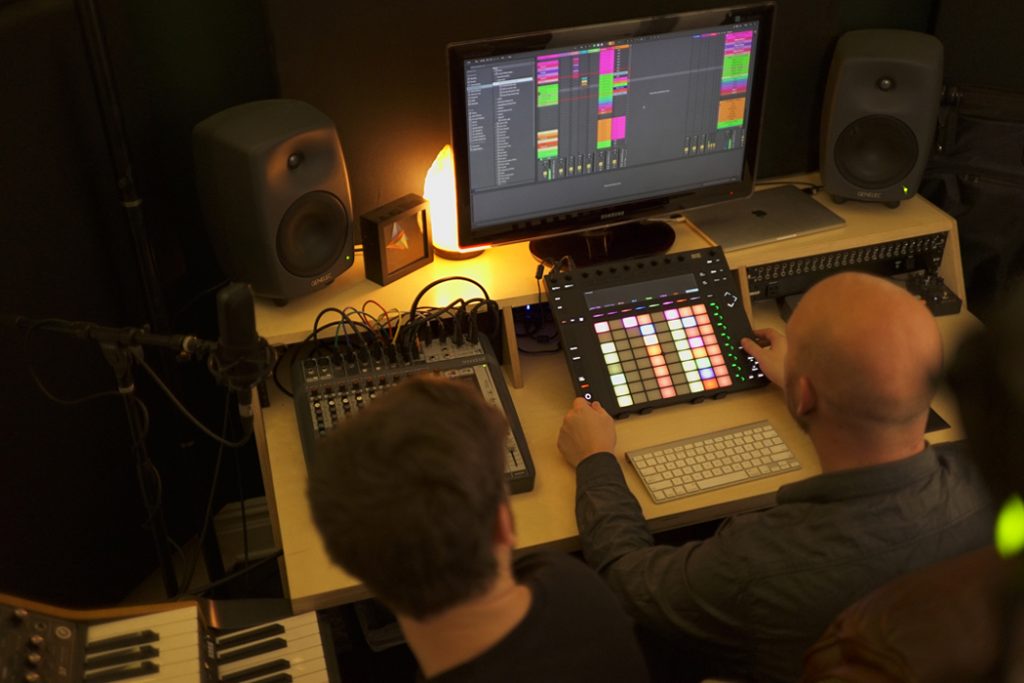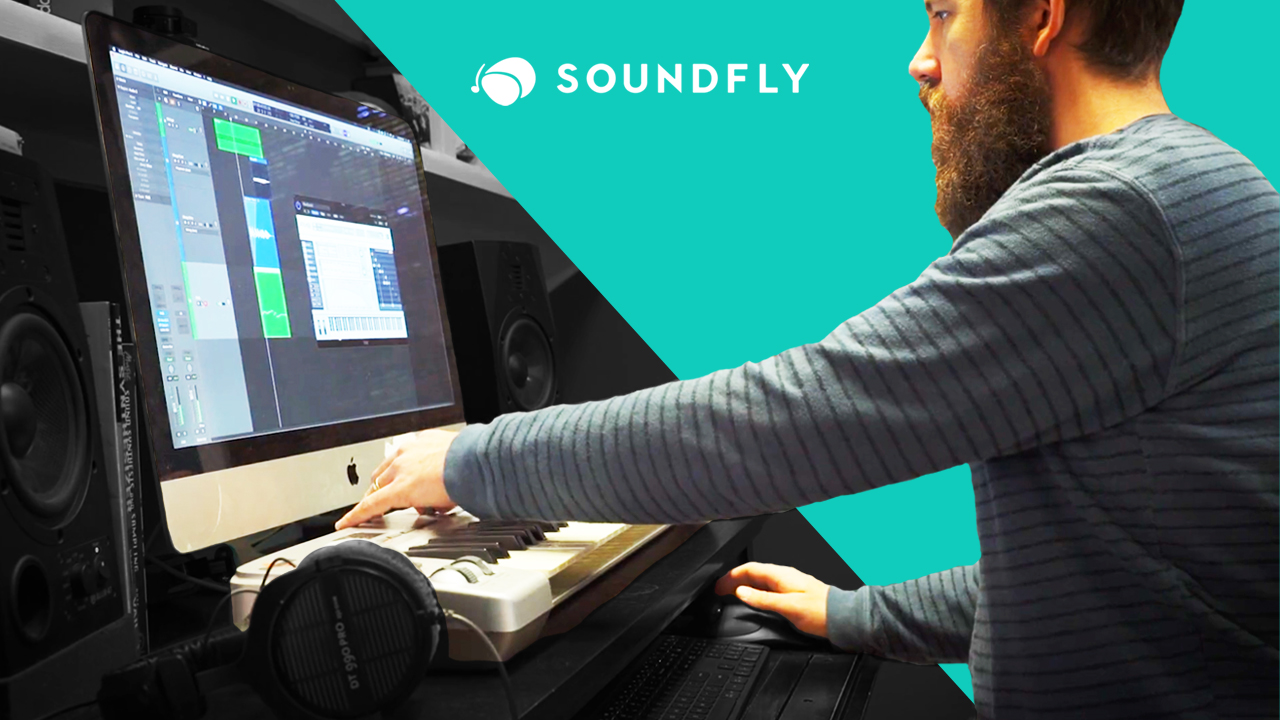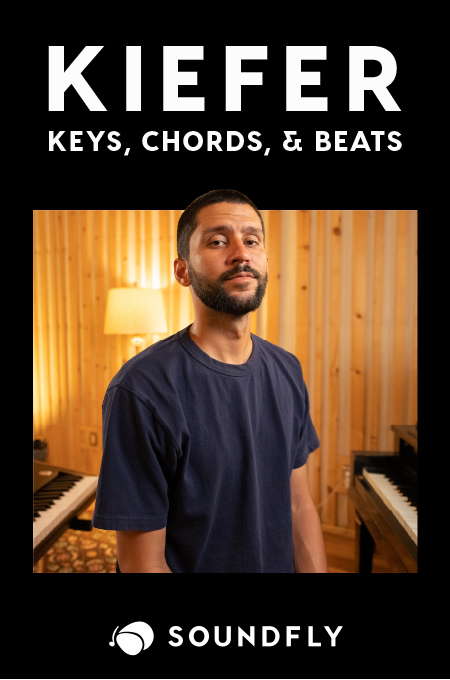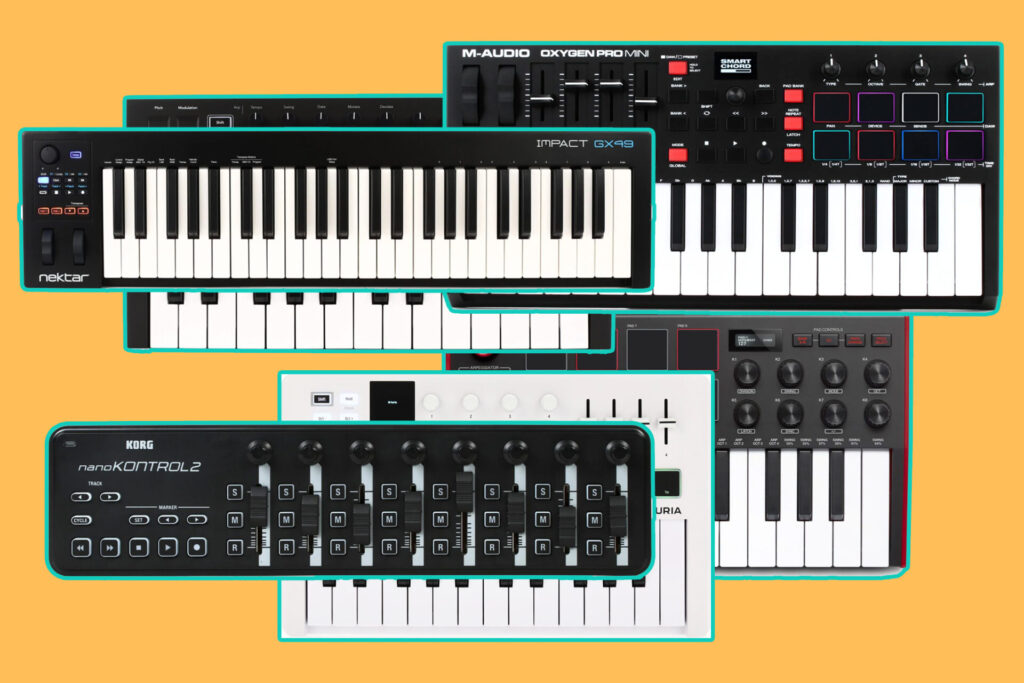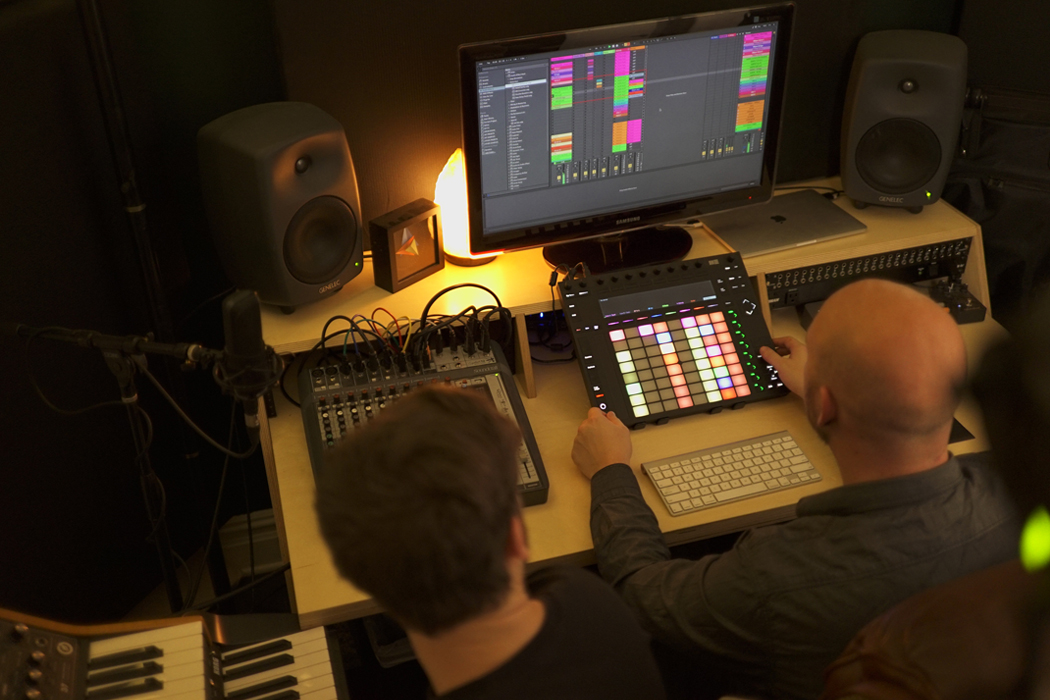
+ Learning to record and mix at home? Preview Soundfly’s online course, Intro to Making Music in Logic Pro X for free, and subscribe for unlimited access here.
Much of the technology that holds a place in our daily lives can be thought of as a double-edged sword, but you’ve probably already known that (or at least have been feeling it).
Whether it’s a social media platform that simultaneously connects you and injects friction in your life, or a handheld device that pulls you into other worlds by removing you from your own, technology is capable of bringing us a complicated mix of benefits and pitfalls.
Our increasing reliance on tech in music-creation is no different, especially as more and more songwriting, recording, and production duties are handled through DAWs (Digital Audio Workstations). Used in the right way, a DAW like Logic Pro X can be a phenomenal tool for recording and shaping music. But used lazily, indulgently, or aimlessly, and you’ll run the risk of having this DAW water down your best ideas.
To help you get the most out of Logic Pro X, here are four somewhat general rules to follow. But first, we absolutely must remind you that Soundfly’s got a wonderful in-depth online course that teaches all the ins and outs of Logic Pro X. Check out our online course here!
Start with a plan for your music.
There’s no question that Logic Pro X is a powerful music-creation platform, but it has the potential to shape your process in negative ways if you let it. The clearer direction you have for the music you work on through this DAW, the better your outcomes will be.
Take Logic’s absurdly large sound library, for example.
Combine this with the ability to customize your own synth instruments, and you’ll end up with more than enough rabbit holes to fall into while creating. Coming into the process with a plan for your music means you won’t spend time getting stuck making decision after decision, because you’ll have a framework to which to refer.
If building synths and testing out instruments sounds fun (it is quite fun), then take some time to do this before you set out to make new music, not during the process. It’ll take the wind out of your sails when you’re in full flow mode.
This idea also applies to production choices, like for example, figuring out what kind of reverb might accompany a vocal track before you start producing, or entirely after, in the mixing process.
Sticking to a plan doesn’t mean you need to make each and every music-creation decision beforehand, but instead that you’ll be operating with your goals, a desired musical aesthetic, and a clear direction in mind.
Resist the urge to “sanitize” your sound.
Whether it’s Auto-Tuning a lead vocal track or quantizing a passage of MIDI notes, the temptation to fix mistakes is ever present when you create through Logic Pro X. But, weirdly, the more you clean up your music, the more unlistenable it becomes in many cases.
Things you might consider mistakes are often the hallmarks of your sound, whether it’s the way you bend specific vocal pitches or the slight drag and push of your approach to rhythm on your instrument. Believe it or not, perfect music usually sounds pretty boring, and boring should be your sworn worst enemy as a creative.
To combat a tendency to overcorrect or overproduce music, think about the plan you want for your music and whether those “clean-up actions,” like quantizing MIDI notes or editing vocal passages, fit within it. As a rule of thumb, only clean up your parts when absolutely necessary, and consider recording tracks again before resorting to editing things artificially.
+ Learn production, composition, songwriting, theory, arranging, mixing, and more — whenever you want and wherever you are. Subscribe for unlimited access!
Learn the ins and outs to make Logic’s capabilities work best for you.
Compared to a more complex DAW like ProTools, Logic Pro X is an easier beast to navigate. However, this doesn’t mean it’s a breeze by any stretch. Logic is simple enough to make your way through without outside help, but learning about everything this powerful platform has to offer will help enrich your process by helping you work quicker and smarter.
By carving out even a half-hour chunk of time and devoting it to learning about Logic Pro X, you’ll create a solid technical music-making foundation that will last for years.
Make decisions that bring out the character and humanity in your music.
This rule applies whether you specialize in making folk or electronic music (or both!). For Logic Pro X to bring out the characteristics of your music that you desire, you’ll need to embrace an approach that keeps the humanness in your music in focus at all times.
For example, it’s infinitely easier to record a MIDI string instrument as opposed to hiring a string player. However, compromises like these start to erode the vision and authenticity of your music. It’s a completely different story if MIDI instrumentation is an intentional part of your creative aesthetic.
If you strictly create electronic music, the challenge becomes using Logic’s features in ways that deliver life, energy, and intrigue to your sound.
Logic Pro X can be used in countless ways, but no matter what you’re doing with it, it’s important to operate it in a way that delivers how you want your music to sound. Doing so isn’t always easy with this platform’s blissful knack for supplying shortcuts and a seemingly endless array of sounds and effects. But the more closely you keep your musical identity in mind while working in Logic, the more honest the results you’ll achieve.
Continue learning with hundreds of lessons on mixing, DIY home recording, electronic music production, beat making, and much more, with Soundfly’s in-depth courses, like The Art of Hip-Hop Production, Modern Pop Vocal Production and of course, Making Music in Logic Pro X. Subscribe for unlimited access here.
